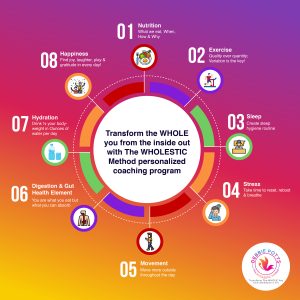Keys to preventing Metabolic Slowdown
- Following the right exercise program
- Achieving the right calorie intake and output
- Consuming the right macros & micros
Test and not guess your Metabolism
Each person’s metabolism is different.
- Although we often hear that, few of us know what it means.
- In a nutshell, metabolism is the process by which you convert nutrients, like fats and carbohydrates, into energy.
- Based on our body weight, muscle composition, medical history, and hormone profile, we all use to burn a different number of calories.
- To maintain a healthy body weight, you need to know the calories you burn to determine the calories you need to eat. Going above this level will cause gradual weight gain, whereas going below can cause metabolic slowdown and hormonal imbalances.
- PNOĒ analyzes your breathing rate and carbon dioxide concentration and determines whether you’re suffering from hyperventilation.
This is the first step of addressing it through breathwork, meditation, or your doctor.
Why Breath Analysis?
The history of Breath analysis:
Why Breath Analysis matters?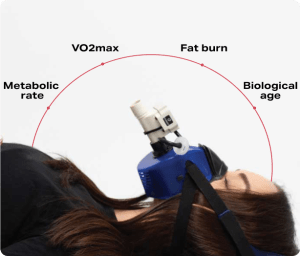
- Breath analysis evaluates all components of the human physiology fundamental to nutrition and exercise prescription, longevity assessment and chronic disease prevention:
- Cells, Heart, Lungs and Blood Circulation.
- Analyzing 23 biomarkers during inhalation and exhalation assesses the most fundamental function which is oxygen flow through the body.
- The importance of oxygen for long-term health has been established through studies examining the function of individual elements found in the oxygen chain (i.e., heart, lungs, cells) and its global function (i.e., overall oxygen consumption).
- The findings of these studies were summarized in a landmark scientific statement published by the American Heart Association in 2016, which elevated VO2peak into a critical vital sign that provides the strongest evidence about life expectancy and quality.
- Specifically, for every unit increase in VO2peak, measured in Metabolic Equivalent (i.e., METs), one’s likelihood of death and onset of chronic disease declines by ~15%.
- Such is its predictive power that the American Heart Association openly called for implementing VO2peak in annual physical examinations.
Energy Intake:
One of the most powerful physiological regulators is the amount of energy or the number of calories one consumes.
- It is the lever that controls body weight and is a critical influencer of hormones, mood, and energy levels.
- The number of calories one should consume is linked to the fitness goal and the individual’s metabolic rate.
- The fitness goal will determine whether the calories ingested must be less, equal (balance), or greater than (surplus) the calories burned respectively.
- To accurately determine, however, calorie intake, one needs to determine the individual’s metabolic rate since it will provide the benchmark from which calorie intake will be set below, above, or at the same level, depending on the fitness goal.
What is your Total Energy Expenditure per day?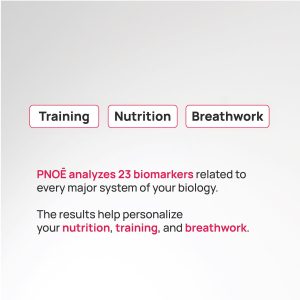
- The primary contributor to total energy expenditure (TEE) is resting metabolic rate (RMR), which is the amount of energy required by the body to perform basic functions (e.g., heart beating, breathing, etc.) at rest without our intervention or need to think about.
- The other main component of TEE is the non-resting energy expenditure, which comprises three parts: non-exercise activity thermogenesis (NEAT), exercise activity thermogenesis (EAT), and diet-induced thermogenesis (DIT), also known as the thermic effect of food (TEF).
- TEF represents the metabolic cost of processing the macronutrients (digestion and assimilation) and where RMR remains relatively unchanged.
On the other hand, NEAT and EAT vary widely within and across individuals. - NEAT encompasses the energy expenditure of occupation, leisure, basic activities of daily living, and unconscious bodily movements (spontaneous action such as fidgeting).
- At the same time, EAT is the voluntary participation in any form of organized physical activity.
- However, tilting the balance of energy in the human body in one direction, in other words going on a calorie surplus or energy deficit, can have severe physiological implications.
- The purpose of these mechanisms aims to keep revert the balance to its original state. As a result, getting to the right CICO balance and maintaining it is much more complex than it sounds.

Maintain a healthy body weight = Body RE Composition
- Each person’s metabolism is different.
- Although we often hear that, few of us know what it means. In a nutshell, metabolism is the process by which you convert nutrients, like fats and
carbohydrates, into energy. - Based on our body weight, muscle composition, medical history, and hormone profile, we all use to burn a different number of calories.
- To maintain a healthy body weight, you need to know the calories you burn to determine the calories you need to eat.
- Going above this level will cause gradual weight gain, whereas going below can cause metabolic slowdown and hormonal imbalances.
Could Exercise be the Key to Success?
Overall, a sustainable weight loss program is a rather difficult equation that needs to take into account a lot of variables, and although an adequate energy restriction is the most salient one, it’s not sufficient for long-term weight loss results, as stated above.
So, even though someone may be in a calorie deficit and hit their macronutrient goals (there is no significant difference between diets’ prescriptions with different macronutrient compositions as long as a healthy balanced diet with sufficient protein intake and various foods from all food groups are followed). After some time, when the adaptive mechanisms have started to kick in, this endeavor may be circumvented.Research has shown that combining dietary modification and exercise is the most effective approach to counter these adaptive mechanisms and achieve long-term weight loss.
The Link That Ties Them All Together
Moreover, there has been a clear association between stress levels and emotional eating, especially a higher intake of highly palatable and energy-rich foods, such as sweets. What’s really intriguing about this association is that chronic stress and its subsequent excessive energy intake preferentially promotes visceral abdominal fatness through complex neuroendocrine mechanisms such as increased cortisol secretion.
This is really alarming considering that abdominal obesity is tightly related to chronic diseases such as cardiovascular disease and type ΙΙ diabetes.
Along with stress, sleep deprivation and poor sleep quality have also been associated with increased energy intake and weight gain. The mechanisms behind this association may, to some extent, be explained by changes in appetite-regulating hormones, like leptin and ghrelin, and a following lower satiating effect of foods as well as a tendency to ingest energy-dense foods. Hence, it seems that sleep and stress exert similar effects on energy intake and that one can exacerbate the other, resulting in cumulative adverse effects on weight regulation.
The Four Pillars of a Successful and Sustainable Weight Loss Program
To put all the above into perspective, a weight-loss effort is anything but an easy process. Many obstacles must be overcome along the way, and someone must be determined to succeed. However, there are some basic criteria that, if fulfilled, this endeavor can become much easier and more enjoyable. These criteria appertain to the four pillars of a successful and sustainable weight loss program which are:
- An adequate calorie deficit will lead to a slow-to-medium weight (FAT) loss rate
- A sufficient protein intake through a healthy balanced diet, irrespective of definite macronutrient ratios.
- High levels of physical activity, with greater emphasis on a resistance training program along with moderate amounts of endurance training.
- Stress management and optimization of sleep for the ultimate effect.
We should always keep in mind that there is no such thing as “the best diet.” The best diet for every one of us is a diet tailored to our personal preferences that we can follow for an extended period without necessarily counting calories or limiting portion sizes daily. People need to think about nutrition and weight loss as a lifestyle change versus a quick fix through some sort of fad/crash diet.
Key takeaways
- Overall, weight loss and even more weight maintenance can be very difficult to attain, given the complexity of energy balance and its backstage mechanisms.
- So, is there a way someone could know whether they are heading in the right direction with their weight loss goals? The answer is yes.
- Indirect calorimetry (IC) is the gold standard for measuring energy expenditure and should be encouraged as a strategy to optimize calorie prescription despite energy expenditure variations.
- Through IC someone can know where exactly their energy balance tilts and adjust their calorie intake accordingly.
- As a result, weight loss and weight maintenance can be greatly facilitated since however hard the body fights against weight loss, IC will not lie and will give you reliable results regarding where your energy balance lies.
- Subsequently, this information will contribute to a personalized and goal-oriented nutrition prescription that will at any time be in line with the actual energy needs of the individual
- https://pnoe.com/blog/weight-management/successful-weight-loss-is-about-physiology-not-psychology/
What does the PNOE Resting Assessment measure?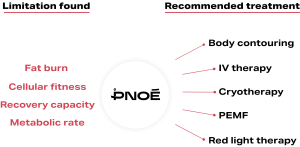
- Metabolic Fitness
- Resting Metabolic Rate
- Fat-Burning Efficiency
- Heart Fitness
- Lung Fitness
- Breathing & Cognition
- Breathing & Posture
- Metabolic Health Risk
- Medical, Training and Nutrition History
PNOĒ analyzes your metabolism with clinical precision and determines with gold standard accuracy… plus more with our NTP Assessment.
- How many calories your body burns so that we can prescribe the calories that will induce weight loss without causing hunger and low energy levels.
- How many fats and carbs you utilize so that we can prescribe the optimal breakdown among fats, carbs, and protein your body needs to minimize hunger.
- The food sources that will fortify important areas of your health and maintain satiety during weight loss.
- The right meal timing to minimize hunger and maintain your energy levels.
- The right exercise program will prevent your metabolism from declining
Improve your Metabolism by Prioritizing Protein + Resistance Training
Muscle-Centric Medicine ®
MUSCLE-CENTRIC MEDICINE® shifts the focus away from reactively quantifying and treating disease to proactively quantifying and optimizing your health by focusing on the biggest organ in your body: skeletal muscle. We measure and optimize your skeletal muscle’s composition, function, and context to improve your metabolic function, hormonal balance, and body composition.
We prioritize personalized lifestyle, nutrition, and exercise strategies to build foundational healthy habits. We then layer in evidence-based integrative and innovative interventions (including pharmaceuticals, nutriceuticals, herbal supplements, and hormonal replacement therapy as needed), to accelerate the change, and ensure results that turn heads and make you feel great.
This approach exceeds the standards of care in a safe and medically-supported way to maximize your healthspan, not just increase your longevity.
The 3 Keys to Muscle Health
MUSCLE-CENTRIC MEDICINE® dramatically improves muscle health through three key elements: nutrition, exercise and lifestyle.
NUTRITION
Proper nutrition via a protein-smart diet activates muscle protein synthesis (muscle building). Not all proteins are created equal, and Dr. Lyon’s protocol and counseling (e.g., through health and wellness plans like the PROTEIN PULSING DIET™) considers your preferences to ensure you consume the suitable types and amounts of protein to give your body the building blocks it needs for optimal muscle health.
EXERCISE
When your muscles contract, they release anti-inflammatory responses called myokines and are closely linked with enhanced mood and cognition. As our patient, we’ll interface with your trainer or recommend a fitness professional to track and provide a team approach.
LIFESTYLE
- Emotional health is critical to your quality of life.
- Physical health triggers mental health, and mental health invokes emotional health, which is crucial in your positive physical transformation.
- Delving into the reasons behind current habits and creating new ones with meaning and purpose is fundamental to your success.
“Muscle is perhaps the most important organ system to combat our current health crisis, regain exceptional healthand maximize physical performance.Muscle health becomes more important as we age, yet is often the most overlooked–even by modern-day medical practices.MUSCLE-CENTRIC MEDICINE® focuses on this, the organ of longevity.Muscle is fast becoming the 6th vital sign.”-DR. GABRIELLE LYONThe Silent Epidemic: Muscle Loss
- The current obesity epidemic is not an epidemic of being over-fat, but being under-muscled.
- Loss of muscle leads to rises in cortisol, insulin, stress hormones and blood sugar levels.
- These issues can occur quietly, without significant gains in weight, which is why it’s vital to measure these markers of your internal health.
- By focusing on the potential of increasing muscle strength instead of the pathology of obesity, we treat disease and create a platform for sustainable vitality and dynamic wellness.
Muscle Health Shapes Your Health span
- Muscle is the key to longevity and aging well.
- As we age, our quality of life depends on our muscle health.
- More muscle means less fragility, fewer falls, more strength, and more mobility.
- With more muscle, you’re more able to fight off illness, recover from injury, maintain cognitive abilities, and prevent chronic disease.
- “The more muscle health you have, the better your trajectory of aging.” – Dr. Gabrielle Lyon
Anabolic Resistance
- As we age, our bodies become resistant to common anabolic stimuli such as dietary protein and exercise, blunting the process of muscle protein synthesis.
- To combat this anabolic resistance, your diet needs to become increasingly protein-rich as you age, and you continue to pursue targeted resistance exercise.
Metabolic slowdown and why you should care about it.
You have undoubtedly heard of the term metabolism. Although most people don’t know what it means, it is often the culprit for failed weight loss attempts or general inability to achieve a fitness goal. This blog explains what metabolism is, why it’s important to maintain it at high levels, and what can cause it to decline.
What is metabolism?
Metabolism includes all biological processes that convert fuel from nutrients like fats and carbohydrates into the energy our body needs to survive. This energy is what we refer to as calories. In simple terms, it’s the process through which we burn calories. It is the most vital biological process since it provides a constant supply of the energy needed to power your body movements and all functions keeping you alive such as breathing, blood circulation, cell growth, muscle reparation, etc. Metabolism differs significantly from one person to another because of age, genetics, exercise habits, nutrition preferences, medication, etc.
Why it’s important to have a high metabolism.
A high metabolism means your body burns more calories than the average person with the same age, weight, height, and gender. Conversely, having a slow metabolism means you are burning fewer calories than the norm. Since weight loss requires a caloric deficit, the state when you eat fewer calories than you burn, having a high metabolism is the most powerful protection against obesity. However, besides protecting you from weight gain, having a high metabolism is associated with faster cellular and muscle tissue reparation and other healing processes vital to recovery after training. Therefore, a high metabolism is also essential for avoiding injuries.
What can cause my metabolism to slowdown?
Aging, nutrition, and training are the most potent drivers of your metabolism and can all lead to a metabolic decline. Here’s how each one can affect it.
Age: Aging will cause your metabolism to decline since the older we get, the harder it is to maintain muscles mass and the less metabolism-boosting hormones (e.g., growth hormone) we secrete. The metabolic decline caused by aging is much less acute than the one nutrition or training can cause, and in most cases, it’s responsible for only a small portion of a person’s weight gain. Moreover, despite the decline it causes, training and exercise can help reverse it and maintain your metabolism at healthy levels.
Nutrition: Nutrition is one of the most powerful drivers of your metabolism. When you reduce the calories you consume and enter into a calorie deficit, the state in which you burn more calories than you eat, your body will reduce its metabolic activities in two ways. First, it sheds muscle mass. This process occurs since muscles are one of your primary energy reserves that will be tapped upon to cover the calorie deficit caused by food restriction. Second, it makes your remaining muscle mass more economical, causing it to burn fewer calories when moving (e.g., walking). This is done by changing the balance of specific hormones that regulate the energy your cells burn during movement. Both processes are part of your body’s survival mechanism and kick in to conserve calories and help you close the energy deficit caused by restricting food intake. However, both can be averted with the correct dose and type of exercise.
Training: Training can affect your metabolism in the fastest and most acute way. Although it can be a powerful tool for increasing your metabolism, over-training can have the opposite effect. The most effective workout type for increasing your metabolism is resistance training. First, it increases your muscle mass, leading to more calorie burn as more active tissue requires more energy. Second, it increases the energy your muscles burn on a per unit basis, meaning that every pound of muscle mass starts to burn more due to a positive shift in the hormone balance regulating your cells’ energy consumption. Too much training, however, has been shown to cause an adverse change in hormone balance (e.g., reduction of growth hormone secretion) that reduces metabolic processes. In this case, metabolic decline and the associated decrease in recovery capacity pose a critical danger for injuries.
Conclusion
A metabolic slowdown can pose a severe obstacle in achieving your dream physique and staying healthy long-term. As a result, one of the most important things to monitor is whether your metabolism has slowed down or whether your current fitness and nutrition are causing it to decline. The PNOE metabolic analyzer provides a clinical-grade analysis of your metabolism, helping you act early and avoid the pitfalls of a metabolic slowdown.
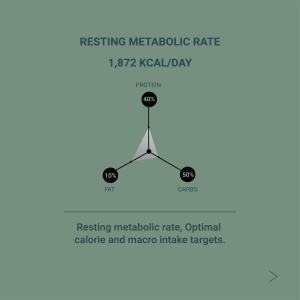
PNOE Metabolism & Breathe Analysis Packages:
-
The RMR: Analysis + Assessment = $197
-
The Performance: RMR + AMR + Assessment = $297
-
The Triathlete: RMR + AMR bike and run + Assessment = $397
Debbie Potts Personalized Coaching Services:
The Bronze Package: The Assessment
Investigate your metabolic health from the inside out using functional lab tests, metabolic breath analysis, Nutritional Therapy Assessment, and more. Understand your metabolism, metabolic flexibility, and receive personalized recommendations.
The Silver Package: The Accountability
Add on a six-month nutrition or exercise accountability package. Track your progress, set goals, and receive suggestions to improve body composition, performance, and the aging process.
The Gold Package: The High Performer 
This package is for ambitious individuals who want to look, feel, and perform their best as they age. Investigate external and hidden internal sources of chronic stressors and work on nutrition, exercise, and lifestyle habits. This package includes weekly check-ins and monthly coaching sessions.
The Platinum Package: The Ultimate Wellness Mastery
A personalized coaching program for those looking to take their health, wellness, and performance to the next level. Investigate external and hidden internal chronic stressors through functional lab tests, Metabolic Typing, DNA Company Reports genetics, and biometrics. Prioritize areas of opportunity in nutrition, exercise, lifestyle, and metrics (HRV). This six-month program includes weekly check-ins, coaching sessions, and adjustments based on your needs and goals.
Coach Debbie Potts uses various tools and methods, including Practice Better Journals, Training Peaks logs, and functional lab testing to create a personalized plan for your health journey.
Don’t wait to start your new journey to health and longevity. Life is always busy, but together with Coach Debbie, you can find the optimal plan for your needs, goals, and personality. Test and not guess quarterly to re-assess and reset, creating your future self today.
________________________________________
To learn more about Coach Debbie Potts and her transformative approach to health and wellness, visit her website at www.debbiepotts.net. Your path to better health is just around the corner, and with Coach Debbie’s guidance, you can take the first step towards a healthier, more vibrant life.
Who is Coach Debbie Potts?
Debbie Potts is a seasoned health and fitness expert with over 25 years of dedication to the industry. Her journey commenced as a competitive athlete and coach but has since transformed her into a holistic health advocate, earning her recognition as an esteemed authority in her field.
Central to Debbie’s mission is the art of life transformation. She specializes in guiding individuals to uncover concealed stressors and maximize their health and performance through her innovative approach, aptly named “The WHOLESTIC Method.” This personalized wellness methodology underscores holistic well-being and acknowledges the distinct needs of each individual.
Debbie’s contributions to the fitness industry are multifaceted and highly commendable. Her repertoire encompasses fitness management, personal training, group and small group training, and coaching across various disciplines. She boasts a diverse array of certifications, including KION Coach, Nutritional Therapy Practitioner (NTP), and Functional Diagnostic Nutrition Practitioner (FDN-P).
Debbie’s passion is deeply rooted in helping individuals identify and mitigate external and internal chronic stressors. This empowers them to embrace life to the fullest and age with resounding resilience and vitality. Her message encourages individuals to shift their focus from chasing symptoms and lab results to treating the whole person from the inside out, thus embracing a holistic approach to health and well-being.
To learn more about Coach Debbie Potts and her transformative approach to health and wellness, visit her website at www.debbiepotts.net. Your path to better health is just around the corner, and with Coach Debbie’s guidance, you can take the first step towards a healthier, more vibrant life.

